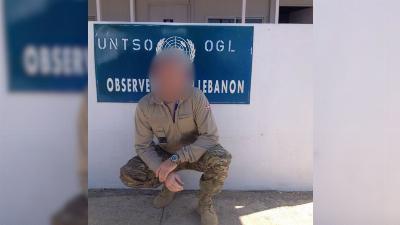"Already from 10 years ago it was completely crazy. Hezbollah controlled which areas the UN soldiers in South Lebanon could visit, and in certain areas they could neither enter nor take pictures.
This is what a former Danish UN soldier says, who for the first time in his more than 25-year career has chosen to tell his story to BT
Michael, who has asked not to have his last name revealed for private reasons, was himself deployed to South Lebanon 10 years ago as part of the UN mission UNTSO (United Nations Truce Supervision Organization).
UNTSO, the UN's oldest and longest-running mission, works closely with UNIFIL in South Lebanon, where they often share the same bases.
Their task is to observe and report violations of UN Security Council Resolution 1701 of 2006, which calls for all of South Lebanon to be Hezbollah-free and for the terrorist group to be disarmed.
When Michael looks back on his secondment, he has no doubts about how to describe the UN:
‘We were totally subject to Hezbollah. We clearly had limited freedom of movement. For example, we never operated after dark for fear of Hezbollah. So they had free time in the evening and night hours,' says Michael, who emphasizes that he is speaking as a private individual and not on behalf of the Danish military.
And when Michael and his colleagues from either UNTSO or UNIFIL drove around the various cities, they were often stopped by suspected Hezbollah members when they tried to enter the areas where they believed the terrorist group could operate.
‘They simply blocked the road. They were not visibly armed, but aggressive, and it was quite clear that they were members of Hezbollah - we knew very well who decided things, especially in the Shiite cities. They didn't want us to see what they were doing,' says Michael.
‘When we patrolled the Blue Line, we often saw 'civilians' very close to the Israeli military installations taking pictures. When that happened, we withdrew and observed from a distance – we were simply instructed to do so,' he adds, referring to the 'blue line' that demarcates Israel and Lebanon.
It was also not allowed for Michael and his colleagues to document what was happening in other parts of the cities.
‘It was forbidden to film and take pictures. And if we did, we could end up with the locals confiscating our cameras. It happened to my colleagues in UNIFIL and UNTSO.'
Hezbollah's control of South Lebanon was already massive then, says Michael..."
October 20, 2024
Michael was a U.N. soldier in Lebanon: 'We were totally subject to Hezbollah'

Former UN soldier Michael in South Lebanon (Photo: Private)
Date
October 20, 2024
Title
Michael was a U.N. soldier in Lebanon: ‘We were totally subject to Hezbollah’, B.T. [Danish newspaper]
Original Source
Note
[Translation by Google]
